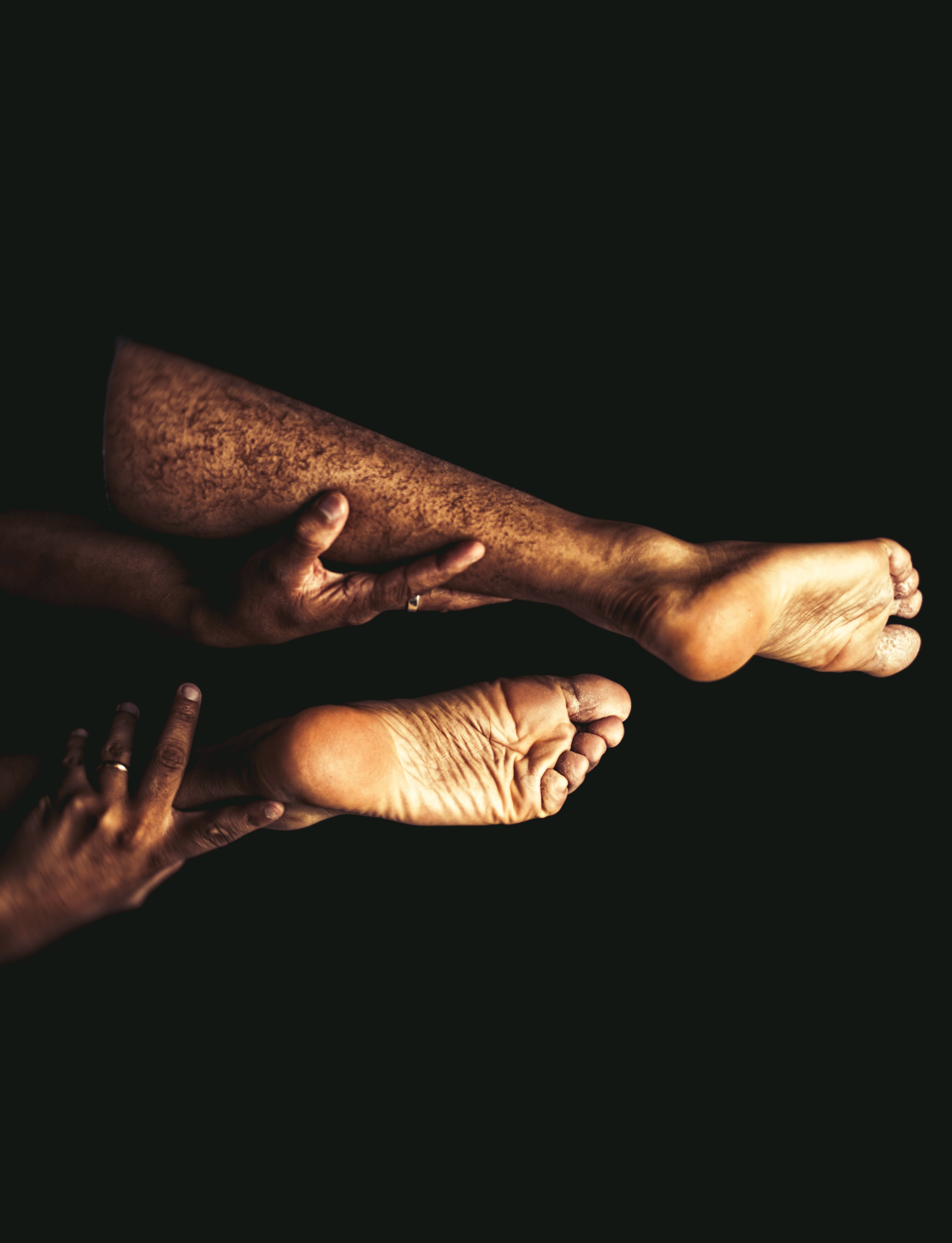Foot care for people with Diabetes.
Diabetes may affect your feet in a number of ways and in some cases can lead to serious complications.
So, what may happen? One of the early changes can be loss of sensation in your feet, often starting at the toes. This is known as peripheral neuropathy. This may be gradual and at first can go unnoticed, which is why it is important that you receive an annual diabetic foot assessment from a podiatrist (See back page for finding a podiatrist near you). Very occasionally pain or a burning sensation (known as painful neuropathy) may accompany it. When the nerves in your feet are affected, other changes may follow. For example, your toes may start to claw and the bones in your feet can become more susceptible to fractures. You will receive both advice and explanation of these changes at your annual foot review, should there be early signs of neuropathy. As people with diabetes can lose sensation in their feet, it is advisable to follow the advice given and check your feet daily. These recommendations, like most good advice, are simple but their importance cannot be overstated. Another change that can occur is reduced blood flow to your feet. Diabetes may also affect your ability to heal and reduce your natural ability to fight bacteria. Consequently, you should take particular care of any scratches, cuts or blisters on your feet. What does the podiatrist look for? If you are presently at low risk of an ulcer you can expect your podiatrist to check your feet once a year. However, if you are at increased risk of complications, these inspections may be done more frequently. The podiatrist will normally check both the pulses in your feet and look for evidence of loss of sensation in your feet. They will also be looking for any foot deformity or signs of excessive pressure that may warrant either footwear advice, removal of hard skin and in some cases an insole. Can I prevent or slow down any changes to my feet? It is possible to prevent or delay changes affecting your feet if you follow medical advice and keep blood sugar, cholesterol and blood pressure levels within the target range set by your doctor. Your chances of doing this will be greatly increased if you do not smoke. Diabetes may affect your feet in a number of ways and in some cases can lead to serious complications. Consult your podiatrist immediately if you see any of the following in your feet.
A break in the skin or discharge • The skin changes colour, becoming redder, bluer, paler, or blacker over part or all of the foot. • New swelling in your feet You should also seek an urgent appointment with your podiatrist or GP if you normally have little or no feeling in your feet but suddenly experience an unexplained pain or discomfort, especially if the surrounding skin is a little warmer to the touch compared with the same spot on the other foot
Always check your feet every day It’s a good habit to get into and extremely important if you have lost sensation in your feet. Look for any colour changes or damage to the skin. If you see anything unusual or have a cut, scratch or blister, contact your podiatrist especially if it is not healing. The podiatrist would rather be consulted for a relatively trivial complaint early than for a more serious problem later. Clean and dress any cuts, scratches or wounds Remember diabetes may affect your ability to heal and reduce your natural ability to fight bacteria. Consequently, you should run water over the wound, dry the skin around the wound (but not the wound itself) and apply a sterile dressing before consulting your podiatrist or GP’s surgery. Always wear footwear If you have lost feeling in your feet, then it is possible that you may unknowingly damage them. You may stand on a sharp object like a nail, piercing the skin without realizing. Always wear shoes that fit properly You should always wear shoes that do not mark the skin or because you callous, for example on the tops or side of the toes. When buying new shoes, get your feet measured. If suddenly you feel you need a smaller size shoe because your old size starts to feel loose, see your podiatrist as this may be an early sign of loss of feeling in your feet. Never sit with your feet too close to a fire Also always remove the hot water bottle or switch off the electric blanket before getting into bed. It is possible if you have lost feeling to burn your feet and develop a foot ulcer as a consequence.
